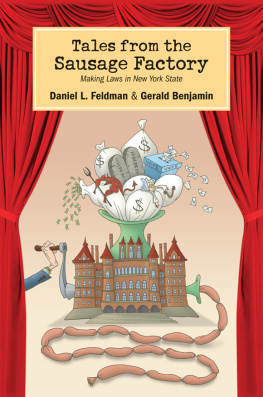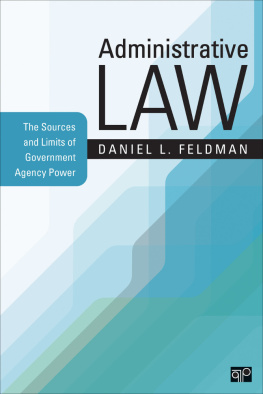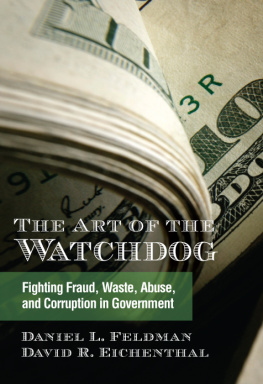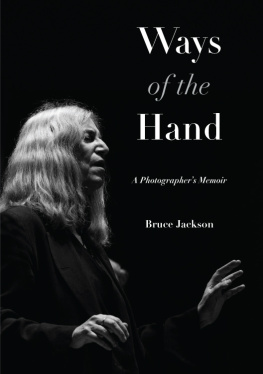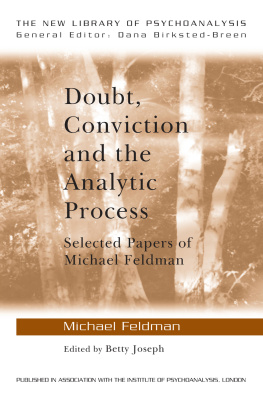Published by State University of New York Press, Albany
2010 State University of New York
All rights reserved
Printed in the United States of America
No part of this book may be used or reproduced in any manner whatsoever without written permission. No part of this book may be stored in a retrieval system or transmitted in any form or by any means including electronic, electrostatic, magnetic tape, mechanical, photocopying, recording, or otherwise without the prior permission in writing of the publisher.
For information, contact State University of New York Press, Albany, NY
www.sunypress.edu
Production by Kelli LeRoux
Marketing by Anne M. Valentine
Library of Congress Cataloging-in-Publication Data
Feldman, Daniel L.
Tales from the sausage factory : making laws in New York State / Daniel L. Feldman and Gerald Benjamin.
p. cm.
Excelsior editions
Includes bibliographical references and index.
ISBN 978-1-4384-3401-8 (hardcover : alk. paper) 1. Feldman, Daniel L. 2. LegislationNew York (State) 3. LegislatorsNew York (State)Biography. 4. New York (State). Legislature. AssemblyBiography. 5. New York (State)Politics and government 1951- I. Benjamin, Gerald. II. Title.
F128.3.F45A3 2010
328.73'092dc22
[B] 2010015999
10 9 8 7 6 5 4 3 2 1
Acknowledgments
I owe this book to my political career. I owe my political career to my love for my country. Had it not welcomed my ancestors in the late nineteenth century, their descendents would likely have been murdered in Europe.
My political career has ended. My gratitude to the United States is eternal.
I also remain deeply grateful to a much smaller, but still quite large, political construct: the people of the 45th Assembly District in Brooklyn, who chose me to represent them between 1981 and 1998. My wife Cecilia thinks it is somewhat indicative that in my unmarried days I ignored years of entreaties from girlfriends to do something about the large chips off my two front teeth, but made an appointment with the dentist immediately upon entering my neighborhood Assembly District office after encountering an elderly gentleman voter on my way in, who saidin one breathFeldman. You're doing a good job. Why don't you get your teeth fixed?
In recent months, my thoughts have turned to a great man I met 44 years ago, Dr. Mphiwa Mbatha, who taught an anthropology course sponsored by the National Science Foundation in the summer of 1965 to a select group of high school students. In some ways, this book reflects the participant-observer notions Dr. Mbatha inspired.
I have more recent debts as well. There could be no better co-author than Jerry Benjamin. I've had other co-authors, so I have a basis for comparison. I may have been a participant observer, but I was also enough of a politician to have too much ego for me ever to have been selfless enough to do what he did hereto invest enormous talents and efforts into the telling of someone else's stories. He knew what to cut out, what to redesign, and especially what to add. When what we needed to add was buried somewhere in the crevices of my memory, he knew what to ask me for. Without him, neither you nor I could proceed with confidence in the belief that we are embarking on a journey into more than a self-serving, historically unreliable memoir of a former small-time politician. Perhaps the foremost scholar of New York State government, he has also had enough participant-observer experience himself as an elected official to understand and communicate the nuances of political life, and the drama.
Before Jerry joined in this effort, Enid Stubin, professor of English at Kingsboro Community College in Brooklyn and Our Spy in New York for The Reader, a British literary magazine, edited an earlier version of this manuscript. The present version, although substantially different, continues to benefit greatly from her close and fine line-by-line review. Professor Jeffrey Stonecash, Maxwell Professor of Political Science at Syracuse University, and two anonymous reviewers for SUNY Press made extremely helpful comments, and our book benefited from changes we made in response. We thank the League of Women Voters of the City of New York for permission to use the map on page 16. Jerry and I are very grateful, as well, to the staff of SUNY Press not only for choosing to publish our book, but for many very worthwhile suggestions during the publication process. We also owe a special thank you to Bradford Scobie and Amane Kaneko, the wonderfully talented artists who gave us the perfect graphics for our cover. I don't think I'd mind at all if people judge this book by its cover. I am obligated to add that the opinions expressed herein are those of the authors, and in no way purport to represent those of the Office of the New York State Comptroller or any other institution.
Finally, although Cecilia has often commented on my consistent choices of, in her words, unremunerative and incredibly time-consuming leisure activities, with this book first and foremost among them, she continues to put up with them and with me generallyand be assured she has many other valid complaints.
A very large thank you to all the above.
Daniel L. Feldman
Port Washington, New York
I met Dan Feldman one evening about three years ago at the New York City Bar Association. I was on a panel that he chaired. I can't remember the subject; maybe it was reapportionment. If not, it no doubt had something to do with legislative reform.
At the close of the session Dan asked me if I would take a look at a book manuscript he had written based upon his experiences as a member of the New York State Assembly. I admired his reputation as a smart, thoughtful, tenacious, policy-oriented legislator; one of the good guys. So I agreed.
The offer to coauthor came after I first gave Dan a memo on how I thought his already very good draft might be strengthened. I demurred at first. Most of the work was already done. A great strength of the draft, I thought, was that it was written in the first person. But it was a fine project; one that held the potential if published to enrich scholars', practitioners', and citizens understanding of the New York legislature and state legislatures generally. I have devoted myself to the subject of New York government over decades, and thought I might add some value. And during my years in academic administration I had not done a scholarly project of this scope. It was time.
Dan rejected the idea of a book by Feldman with Benjamin. He agreed to leave the book in his voice (which we have done, except for the Preface, the Prologue, and the final chapter). The rest, as they say, is history.
Of all that has thus far come out of this project, or may result from it, I value most that it has brought me the friendship of Dan Feldman.


